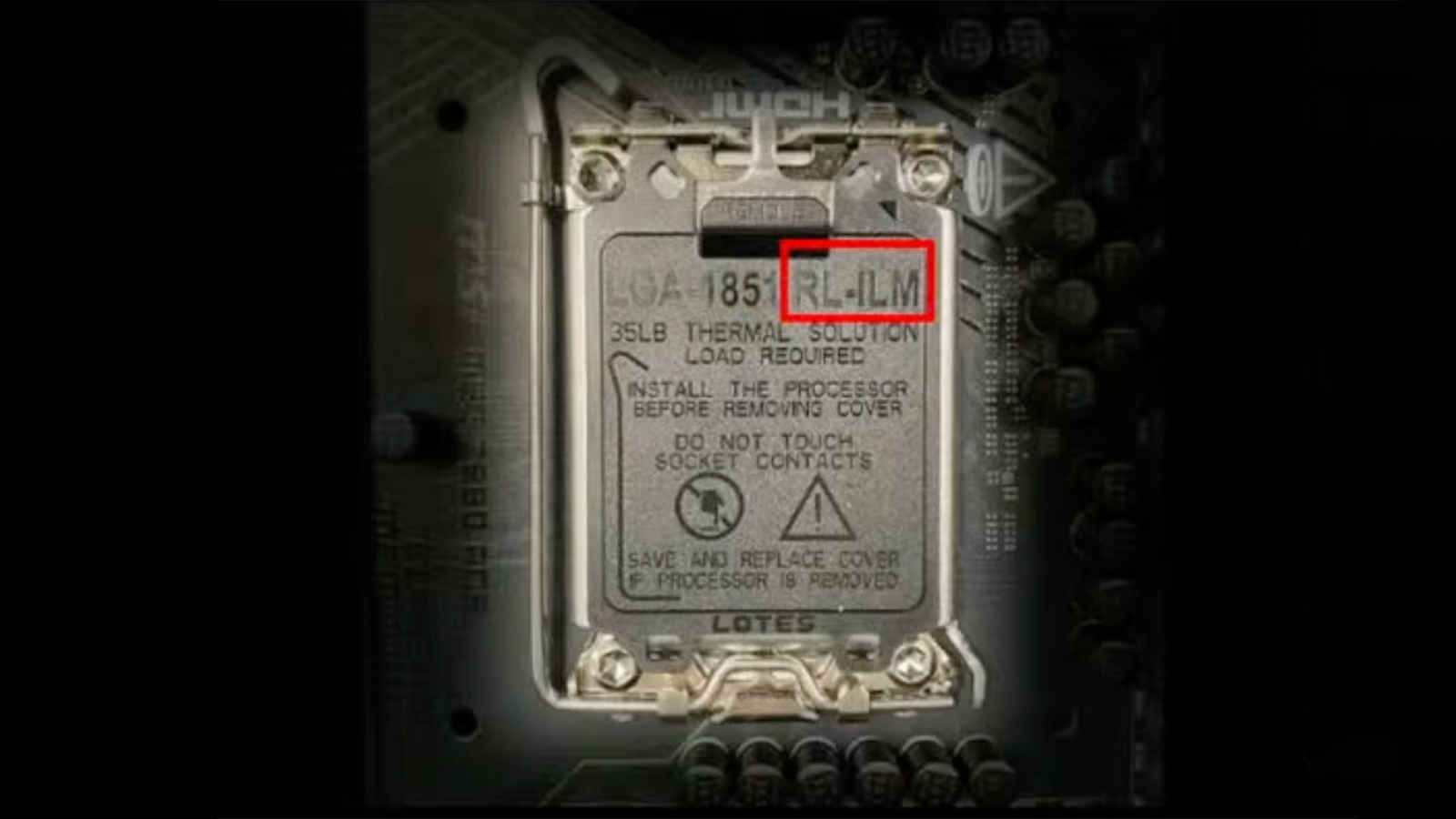
Intel's processors in LGA1700 packaging have faced serious criticism for bending and, therefore, insufficient cooling in some cases. With its Core Ultra 200S (codenamed Arrow Lake) processors in LGA1851 packaging, Intel not only moved the CPU hotspot north but also adopted a different integrated lever mechanism that improves compatibility with liquid coolers to lower thermals and uses a flat load plate, according to an MSI webcast.
"Intel adopts the new RL-ILM for Intel Core Ultra Processors," a statement by MSI reads. "The new ILM reduces loading force and ensures the liquid cooling fits more securely on the CPU surface, improving heat dissipation efficiency and reduce the CPU temperature about 1-2 degrees."
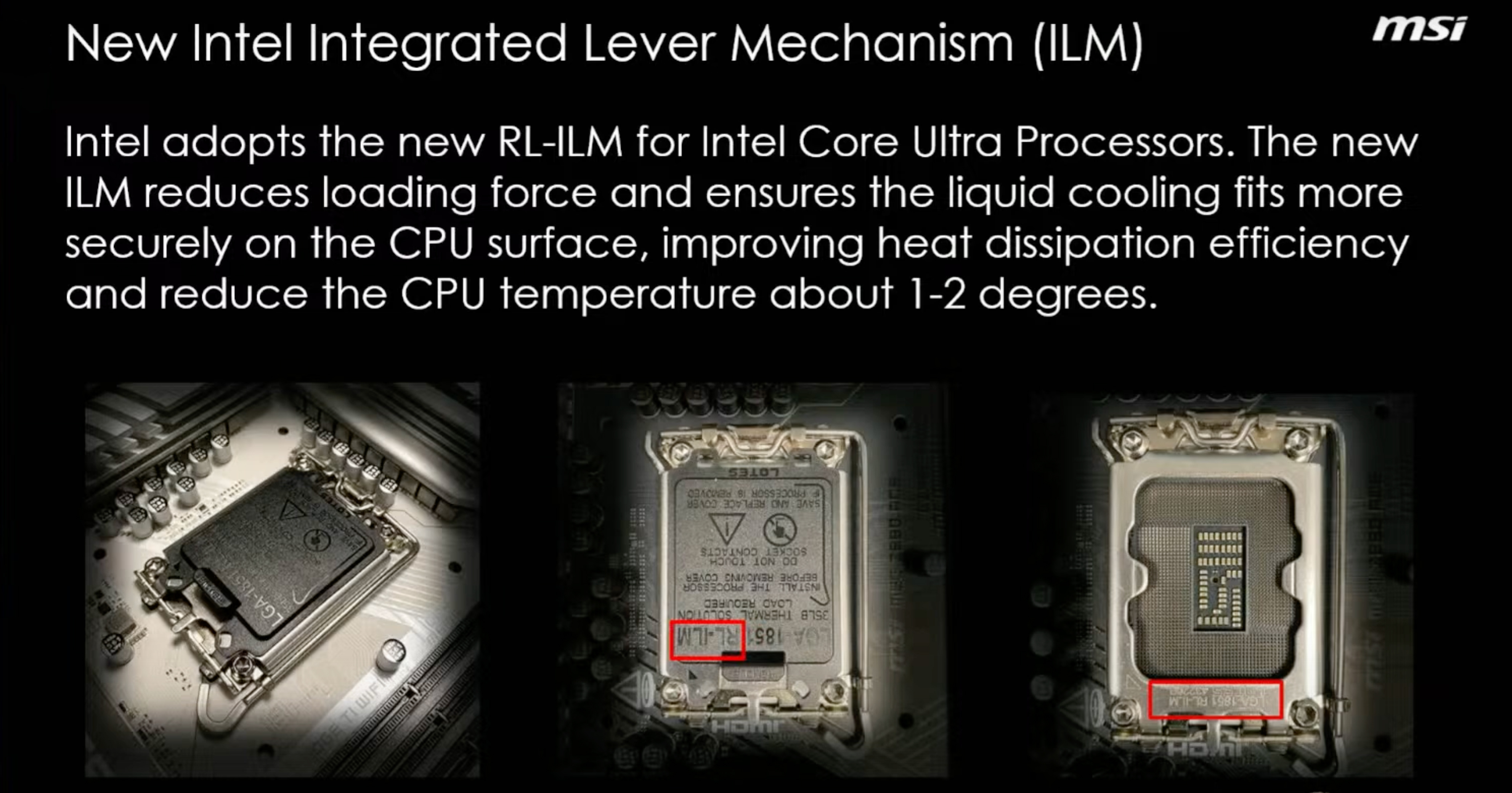
The new socket for LGA1851 processors uses a new RL-ILM, or integrated lever mechanism, the metallic bracket that holds the CPU in the socket. While the new IRL is not dramatically different from the one used with LGA1700 sockets and does not prevent the installation of previous-generation cooling systems (well, at least some of them), it has a lower loading force (which will reduce the chances of damaging Arrow Lake and other CPUs).
Perhaps more importantly, the new ILM also adopts a flat load plate (compared to a slightly curved load plate in the case of LGA1700 POR-ILM), which could address bending issues.
According to MSI, the new ILM offers better compatibility with liquid coolers, which helps lower CPU temperature by one to two degrees Celsius.
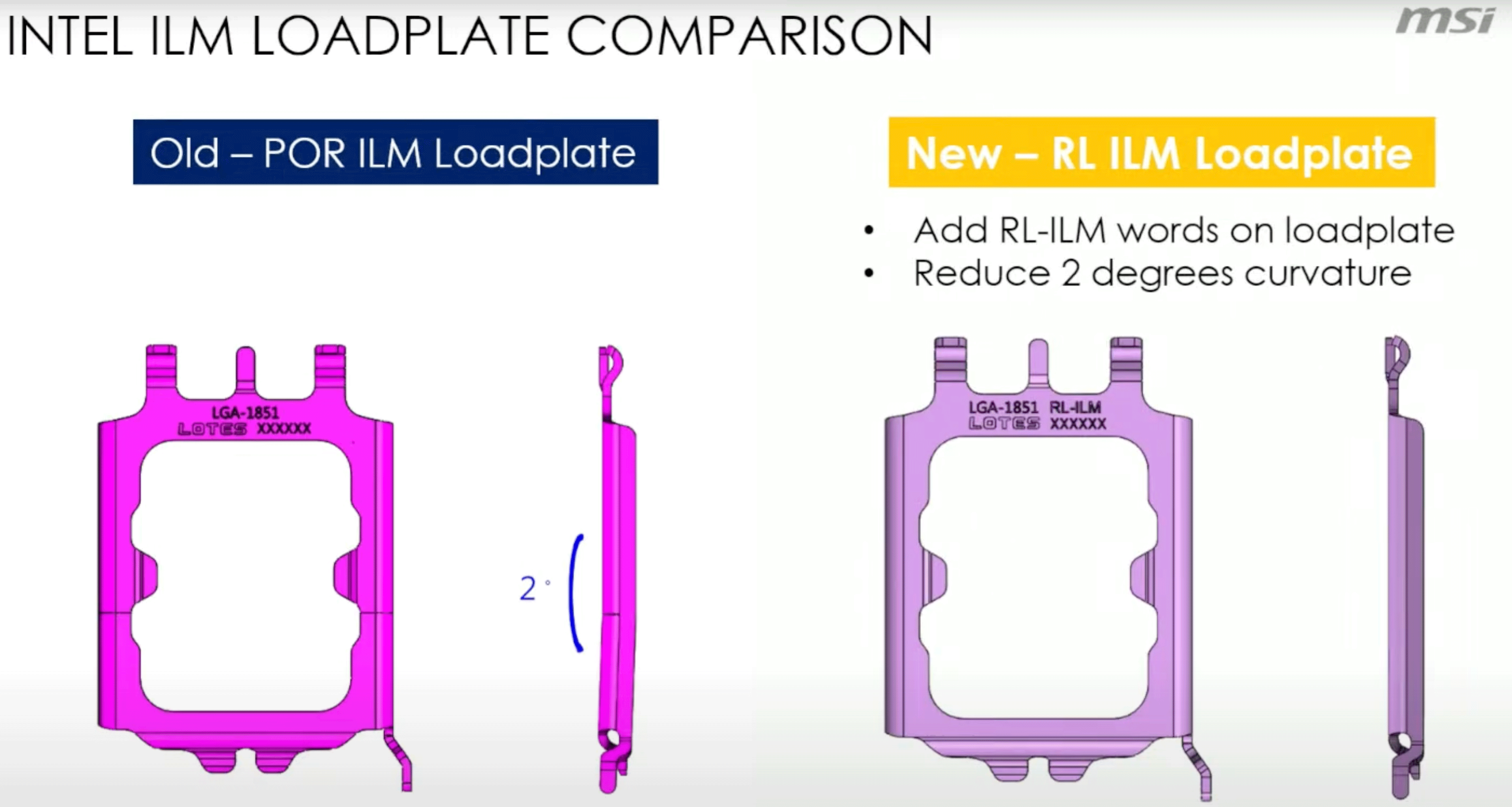
To achieve this, Intel had to add two extra components to the bracket's construction: an additional hinge frame insulator and a new lever frame insulator. While this makes the ILM slightly more complex, it helps cool down the CPU.
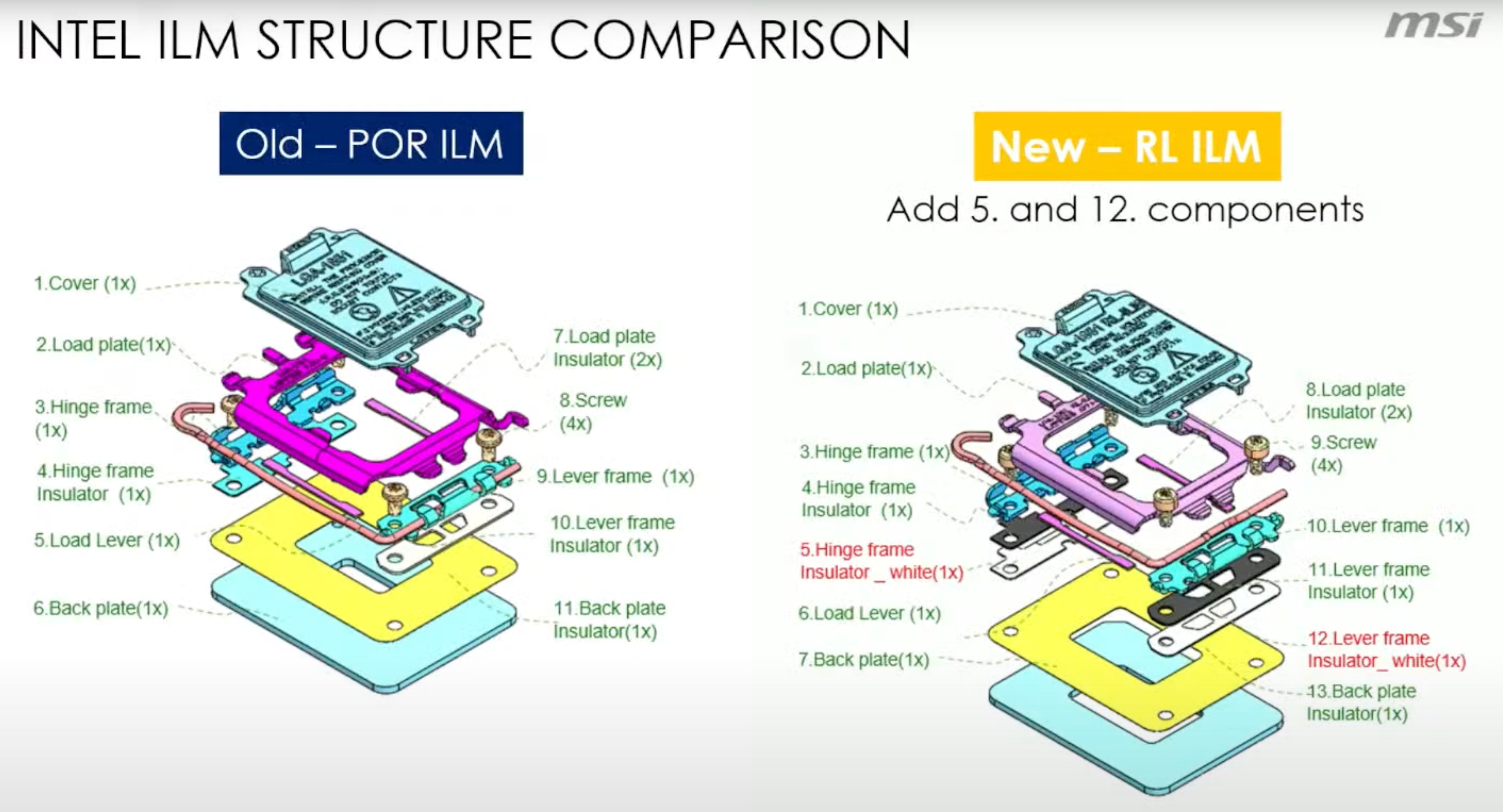
Also, the new flat load plate promises to circumvent CPU bending or at least reduce it. For some reason, MSI's webcast does not explicitly say this. Yet, since Intel's Arrow Lake processors use a multi-chiplet design, their bending could be devastating and kill these CPUs, so Intel had to alter the socket design.
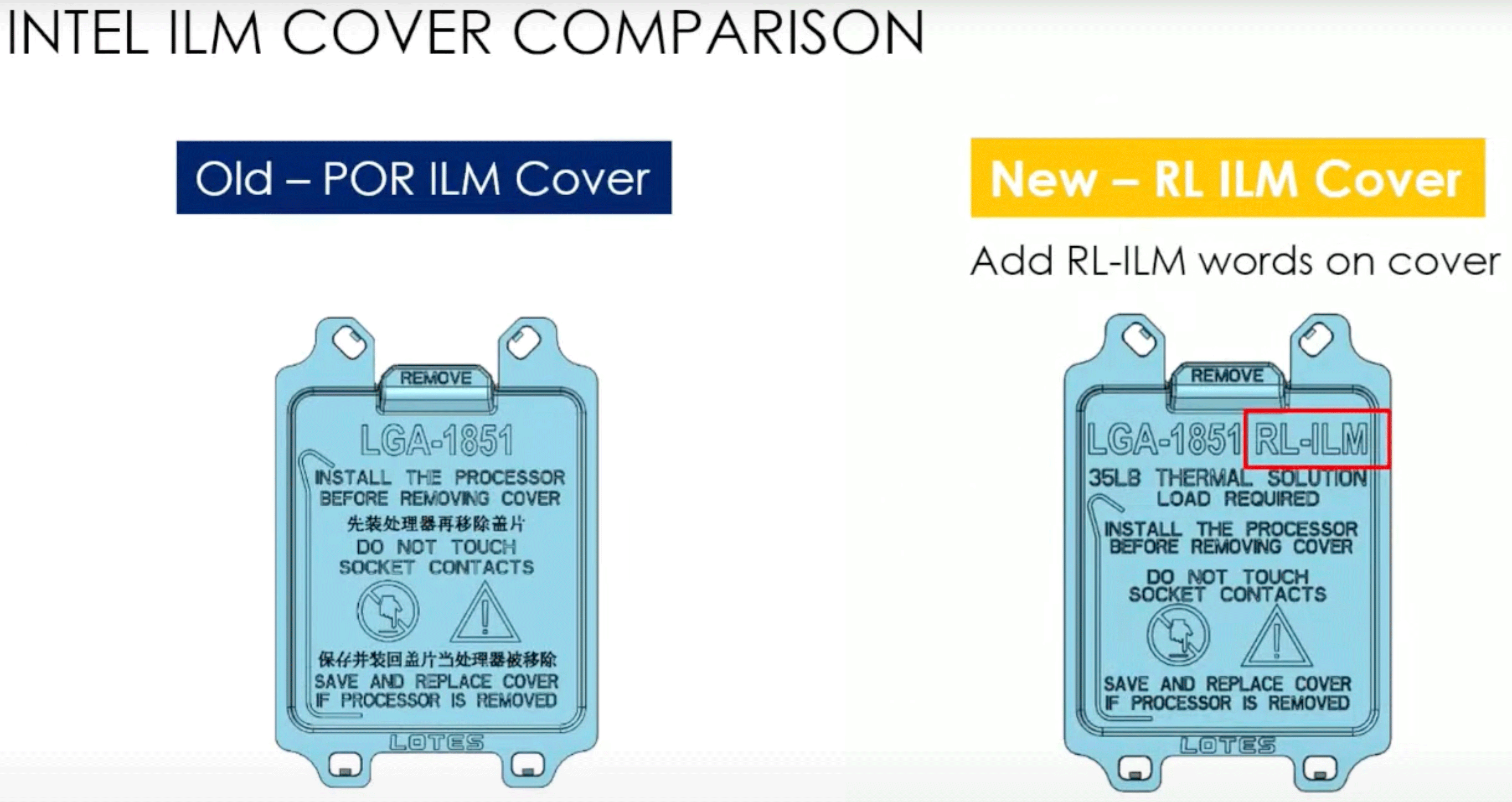
Intel's Core Ultra 200S Arrow Lake-S processors for desktops have just launched. In the coming weeks, we will learn more about their performance and the platform itself.







